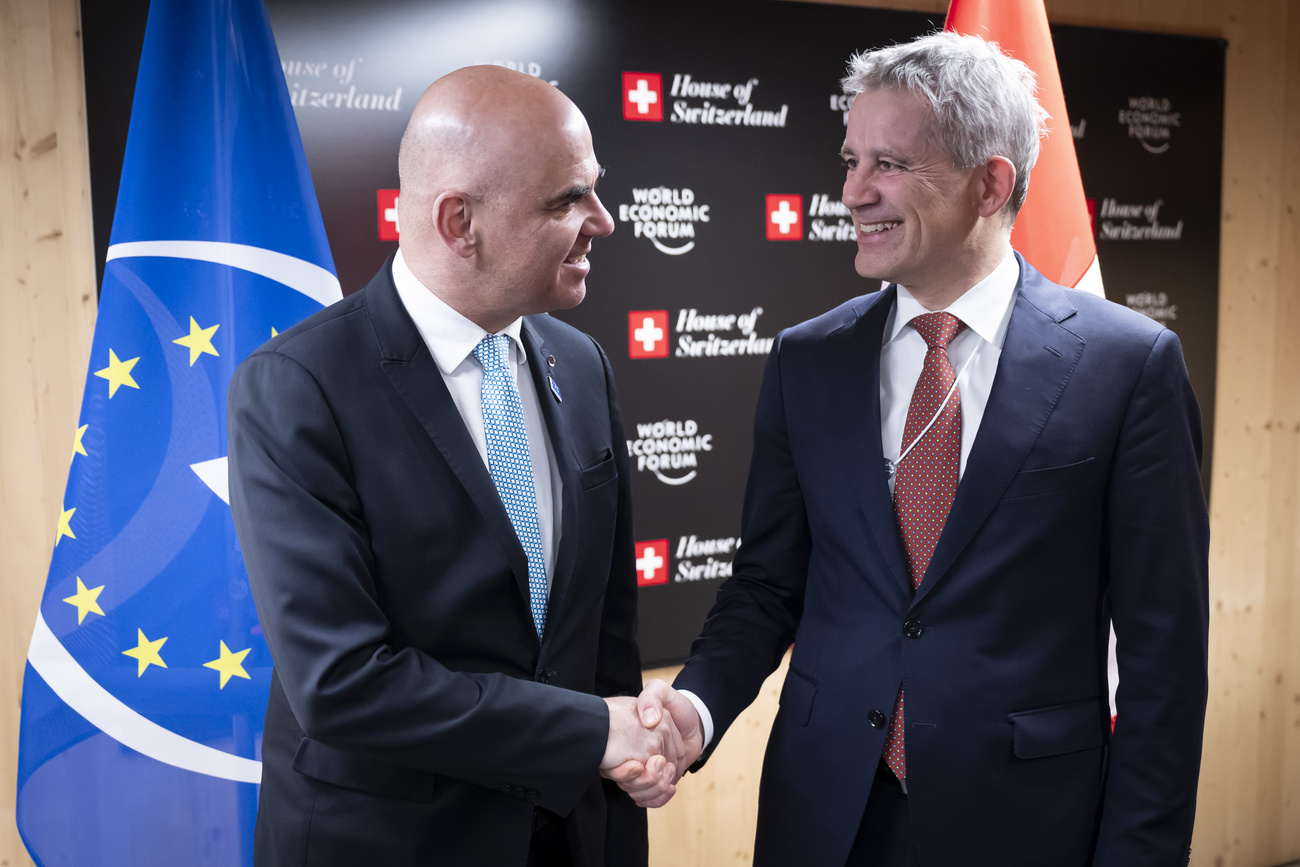
Berset discusses ECHR climate ruling implementation at Davos

The Council of Europe’s Secretary General, Alain Berset, discussed how Switzerland is implementing the recent climate ruling during a meeting with Justice Minister Beat Jans in Davos.
+ Get the most important news from Switzerland in your inbox
Last year’s decision of the European Court of Human Rights (ECHR) is now in the political implementation stage.
Switzerland has submitted a report on the court’s ruling in Strasbourg, Berset told the Keystone-SDA news agency at the World Economic Forum (WEF) on Tuesday.
+ECHR ruling: research group highlights Swiss climate shortcomingsExternal link
The Committee of Ministers, made up of the 46 member states of the Strasbourg-based Council of Europe, is now reviewing the report.
More
ECHR calls for greater climate commitment from Switzerland
The ruling allows for political debate to take place. The ECHR didn’t specify the final outcome but urged Switzerland to show greater commitment to climate issues. There has also been progress in Switzerland since the ruling. “Everything is moving, and that’s a good thing,” said Berset.
Last April, the ECHR backed a complaint by the “Senior Women for Climate Protection” association. They sued in Strasbourg, arguing that Switzerland wasn’t doing enough to protect older women from climate change. The ruling grabbed international headlines.
Berset said he would stay in Davos until Thursday morning, aiming to make as many contacts as possible. He wants to promote the values of the Council of Europe: democracy, rule of law and human rights.
Translated from German with DeepL/sp
This news story has been written and carefully fact-checked by an external editorial team. At SWI swissinfo.ch we select the most relevant news for an international audience and use automatic translation tools such as DeepL to translate it into English. Providing you with automatically translated news gives us the time to write more in-depth articles.
If you want to know more about how we work, have a look here, if you want to learn more about how we use technology, click here, and if you have feedback on this news story please write to english@swissinfo.ch.

In compliance with the JTI standards
More: SWI swissinfo.ch certified by the Journalism Trust Initiative





























You can find an overview of ongoing debates with our journalists here . Please join us!
If you want to start a conversation about a topic raised in this article or want to report factual errors, email us at english@swissinfo.ch.